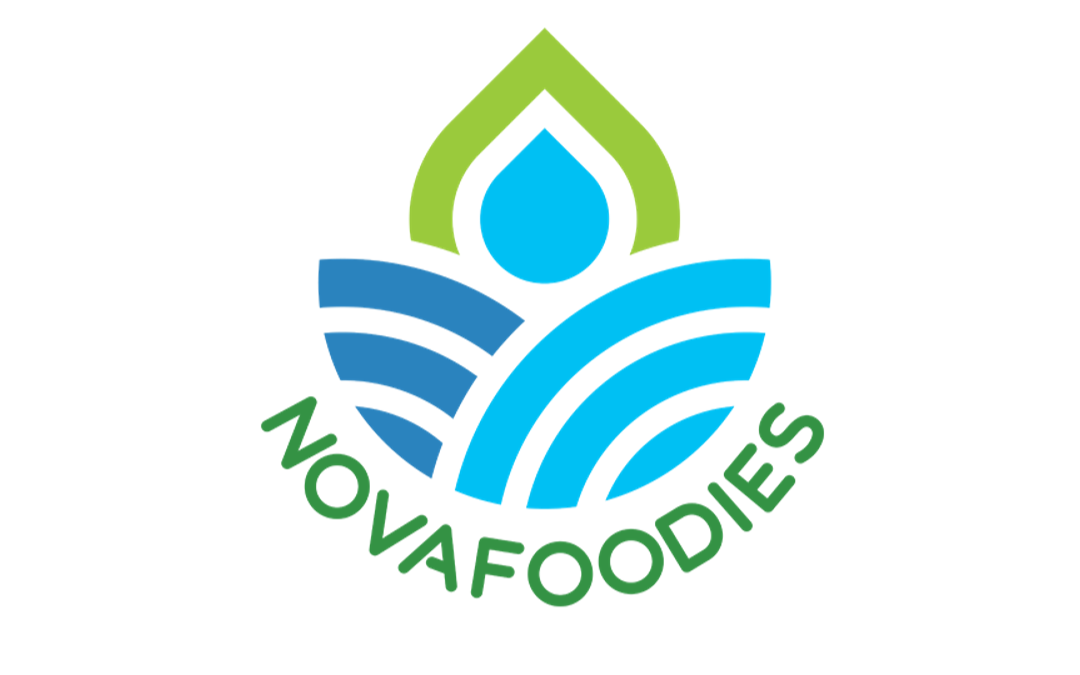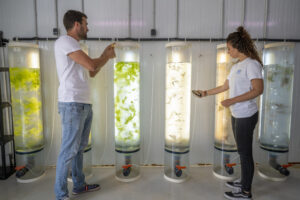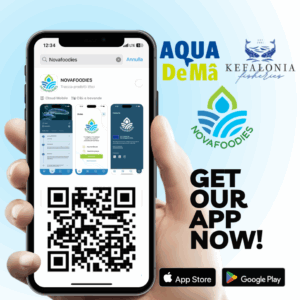Can aquaculture help us build a better future for all?

Aquaculture holds enormous potential to contribute to the Sustainable Development Goals (SDGs). It can support global efforts to end hunger, improve health, reduce poverty, promote gender equality, enhance livelihoods, and reduce social inequalities[i].
Yet, despite this promise, aquaculture’s role in sustainable development is often overlooked. Why? Because the sector is marked by complex value chains and a widespread lack of accessible data, clear guidance, and public visibility.
The EU is strengthening aquaculture for a sustainable future
The European Parliament has repeatedly emphasized the need to strengthen the aquaculture sector through resolutions and discussions. It has drawn attention to the challenges the industry faces and called for a more competitive and sustainable EU aquaculture system. Recent resolutions[ii] provide valuable guidelines that Member States are encouraged to implement. Key recommendations include:
- Data that drives change. To design effective and inclusive policies, the EU calls for better data collection across the aquaculture value chain—covering employment trends, training, gender, age, and more. High-quality data is essential for understanding the workforce and informing decisions.
- Recognizing the role of women. A significant gender imbalance persists in EU aquaculture, where 78% of workers are men[iii]. Women remain underrepresented, particularly in leadership roles. The EU highlights the need to expand training and qualification opportunities for women across all blue economy sectors.
- Building skills for a sustainable industry. Skill gaps remain a major concern. As of 2023, 41% of aquaculture workers in the EU had low levels of formal education, and only 8% held higher education degrees[iv]. To foster innovation and sustainability, the sector must develop specialized training programs and modernized educational pathways.
Copyright CTAQUA
Partnerships are key to inclusive growth in aquaculture
Aquaculture continues to present systemic barriers for vulnerable and underrepresented groups. These include limited training opportunities, rigid work structures and lack of support networks. Women, in particular, face challenges such as underrepresentation in decision-making roles, persistent gender stereotypes and wage inequality.
Promoting socio-labour inclusion and gender equality is essential for building resilient economies and communities[v]. These principles help reduce poverty, improve health and education outcomes, and create more equitable access to opportunities. Inclusivity also enhances environmental and social outcomes by fostering more holistic and innovative solutions.
Creating a more inclusive aquaculture sector requires strong, strategic collaboration. Governments, industry players, civil society organizations, and local communities all have vital roles to play. In this regard, NGOs are especially important in supporting vulnerable groups and amplifying marginalized voices. Moreover, women’s associations and networks are key allies in advancing gender equality in the blue economy—advocating for fair treatment, visibility, and opportunity.

Copyright CTAQUA
NOVAFOODIES: Driving Change Toward Inclusive and Sustainable Aquaculture
In this context, the NOVAFOODIES project was launched. One of its main goals is to place socio-labour inclusion and gender equality at the heart of aquaculture’s sustainable development. These values are not only vital for promoting equity, but also essential for improving the social, economic, and environmental performance of the sector—and securing its long-term resilience.
With the support of key partners, Acción Contra el Hambre has analysed the main barriers to social inclusion and gender equality in EU aquaculture. The result is a comprehensive guide designed to:
- Identify key structural and social challenges. Examine the systemic and cultural barriers—such as unequal access to training, rigid work conditions, gender bias, and lack of representation—that prevent full participation of women and disadvantaged groups in the aquaculture sector.
- Offer actionable, evidence-based recommendations. Provide clear, practical strategies for policymakers, institutions, and companies to promote diversity and inclusion, based on real-world data and successful case studies.
- Highlight successful practices from across the EU. Showcase inspiring examples of inclusive policies, community initiatives, and business models that have effectively improved participation and equity in the sector, offering replicable models for others.
- Provide two self-assessment tools in the form of questionnaires
Equip aquaculture stakeholders with diagnostic tools to assess their organization’s current performance on inclusion and gender equality. These questionnaires help identify gaps, raise awareness, and guide improvements aligned with best practices and EU objectives.
This resource is meant to serve as a practical toolkit for policymakers, employers, and organizations seeking to drive real, lasting change. By investing in skills, addressing inequality, and breaking down systemic barriers, aquaculture can provide dignified work, reduce social gaps, and contribute meaningfully to a fairer, more sustainable Europe.
Do you want to know more, you can download the documents HERE!
[i] Food and Agriculture Organization. (2023). Blue transformation: Roadmap 2022–2030. FAO. https://openknowledge.fao.org/server/api/core/bitstreams/2f12c8a2-fc0a-4569-bb97-6b5dbf5b6fbe/content
[ii] European Commission. (2020). Gender equality strategy 2020–2025. https://commission.europa.eu/strategy-and-policy/policies/justice-and-fundamental-rights/gender-equality/gender-equality-strategy_en
European Parliament. (2021). Fishers for the future: Attracting a new generation of workers to the fishing industry and generating employment in coastal communities (2019/2161(INI)) [Resolution]. https://www.europarl.europa.eu/doceo/document/TA-9-2021-0386_EN.html
[iii] Scientific, Technical and Economic Committee for Fisheries (STECF). (2023). Economic report on the EU aquaculture (STECF-22-17) (JRC132648). Publications Office of the European Union. https://doi.org/10.2760/51391
[iv] STECF, Economic Report on the EU Aquaculture,
[v] EEAS. (2023). Diversity and Inclusion Agenda in the EEAS 2023-2025. Retrieved from https://www.eeas.europa.eu/eeas/diversity-and-inclusion-agenda-eeas-2023-2025_en
Carlos Alonso, European projects technician
Acción Contra el Hambre
23rd July 2025


